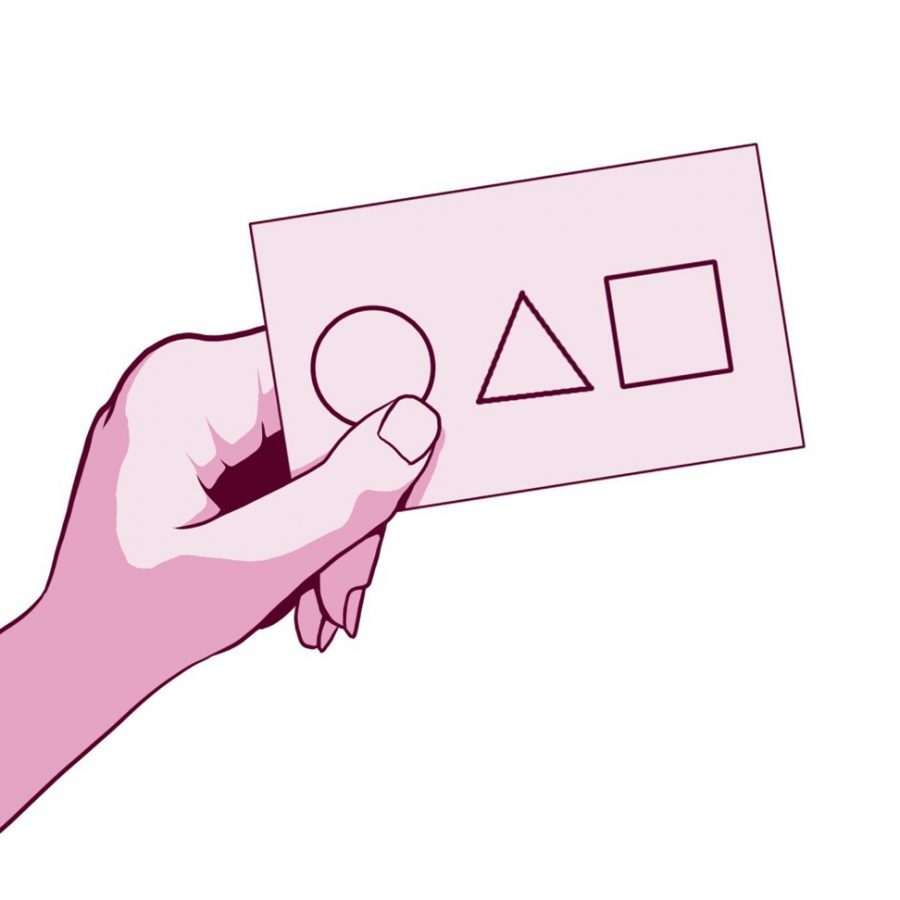Squid Game: A Haunting, Gory Depiction of Capitalism’s Pitfalls
The invitation card each contestant of the “game” receives before agreeing to participate.
Secretive workers load hundreds of boxes of players who have been shot for their failures into incinerators. But, a finger creeps out of a gap between the lid and the box, there is a faint scream, a plea for help.
The lid is slammed shut. Screwed down. And tossed into the incinerator without a second thought.
And that’s not even the most disturbing image in the nine-episode series Squid Game, which came to Netflix in September. Within weeks it somehow became their most watched show ever.
The popularity of Squid Game is not a feat of genius storytelling or intricate plot, but rather a gorier version on a familiar formula of shows like Hunger Games, Battle Royale, and The Running Man, among others. The thrilling style attracts many. It is filled with violence and death, yet has few aspects of suspense.
The plot is quite easy to predict. The central group of players comes straight from any Hollywood thriller: the silent, but strong and resilient leader, the moody outsider, the violent gangster, the kind old man, and of course the gentle naive main character who always connects the most with the audience. They die in the order you would expect them to.
The show is just empty calories—a repeat of other dystopian ones with a small twist added in a new setting. Squid Game might also be too violent and have too many deaths to have practical meaning.
Students and faculty in the Latin community weighed in on Netflix’s new hit. Drama teacher Nick Baer said, “I actually think with any kind of high concept science fiction or fantasy work that is meant to be either an obvious or subtle allegory to real life. The amount of craziness or weirdness isn’t really the issue.”
Rather, Mr. Baer suggested a flaw in the series that lies slightly below the surface. “If the craziness feels forced, or no longer connects with the themes or aesthetic of the piece, then it becomes a problem,” he said.
Squid Game has certainly crossed this boundary.
The show has received harsh criticism from parents. An English council urged parents not to allow children to watch Squid Game. However, students still love the show.
Junior Cameron Woan enjoys the violence. He said, “It was important that death was a part of the show because the stakes of the show were raised. It would have felt really inconsequential if the contestants could just go home after they were eliminated. That doesn’t make for such a compelling story.”
Throughout its depiction of the harsh reality of poverty and the lengths some are willing to go to in order to escape it, Squid Game attempts to illustrate the seriousness of the issue. Hwang Dong-hyuk, the creator, director, and writer of the series, explained that the show allegorizes a modern capitalist society. Indeed, the very existence of the “game” is contingent on the rigid social pyramid that yields structural poverty.
Writing the show’s script while battling financial struggles himself, Hwang successfully conveys his anti-capitalist viewpoints by displaying numerous characters who continuously suffer under a capitalist society.
Interestingly, Hwang’s introduction of the “game,” a chance for characters to leave behind the challenges capitalism inflicted upon them, uses ideas of communism. For instance, all players are treated equally, each wearing identical clothing, receiving equal rations, and having a fair chance to succeed in the competition.
At the same time, Hwang uses the game to bring forward an anti-communist metaphor. In order to win the prize, the 456 contestants are stripped of their rights, humiliated, and killed during the game.
For many viewers, the show’s political agenda made it less interesting to watch. Senior Tobi Morrow said, “They were just trying to make a lot of philosophical and political comments about life and society, and I don’t even think that it was reflective of Korean culture the way I know it.”
In response to Squid Game exposing the pitfalls of communism as a solution, pro-North Korean news sites have blasted the messages associated with the show. Arirang Meari, one of these sites, recently said, “It is said that it makes people realize the sad reality of the beastly South Korean society in which human beings are driven into extreme competition and their humanity is being wiped out.”
Despite Hwang’s convoluted agenda, the eerie drama prevails, breaking records and playing a major role in further popularizing K-Drama across the world.

Armaan Shah (‘23) is a senior at Latin and is thrilled to be serving as an Editor-in-Chief of The Forum. He has covered a wide range of topics and encourages...

Akshay Garapati (’23) is excited to be serving his first term as the Sports Editor for The Forum. Previously, he served as the Opinions Editor. Editing...





















































Ben Martinez • Nov 21, 2021 at 2:03 pm
Could the message be about Post-Korean-war SK? The idea that it is a dystopia directly mirrors Syngman Rhee’s rule and legacy that haunts SK to this day. South Korea was seen as the worse off country after the war as NK had the industry and intelligence, so to modernize SK used labor as its “crop” as many Latin Students learned in Eng 10 Asian Lit with Ms. Diorio. Our Twisted Hero the first book taught by Ms. Diorio, has many parallels to Squid Game. Many seem to conveniently forget SK’s founding and history in favor of the post-90s success and glamour especially horrors such as the extermination of the Gwangju uprising (I do not use the word extermination lightly). SK was nowhere close to a democracy until the June Democratic Riots (1987). Also it seems that Mr. Hwang sees it more as a criticism of global capitalism: “I wanted to create something that would resonate not just for Korean people but globally. This was my dream.” and “I do believe that the overall global economic order is unequal and that around 90% of the people believe that it’s unfair. During the pandemic, poorer countries can’t get their people vaccinated. They’re contracting viruses on the streets and even dying. So I did try to convey a message about modern capitalism. As I said, it’s not profound.” To that end I disagree that it is about the horrors of Stalinist/Maoist/2nd world conditions. Instead like many other modern Korean suspense movies and shows it reflects the deep trauma from Cold War/1st World authoritarian and dictatorial rule that bled into the modern day through income inequality and class divide. Theres a reason the term “Hell Joseon” is a popular satirical term among the younger generation to describe the despair and hopelessness over economic concerns, even though the country has the 10th highest Nominal GDP as of this year.
Sources:
https://en.wikipedia.org/wiki/Syngman_Rhee?scrlybrkr=b04c4fc3
https://en.wikipedia.org/wiki/South_Korea#Post-Korean_War_(1960%E2%80%931990)
https://en.wikipedia.org/wiki/Squid_Game#Themes_and_analysis
https://www.asianstudies.org/publications/eaa/archives/a-bully-in-the-classroom-teaching-our-twisted-hero-a-modern-korean-classic/
https://en.wikipedia.org/wiki/Hell_Joseon
https://en.wikipedia.org/wiki/List_of_countries_by_GDP_(nominal)